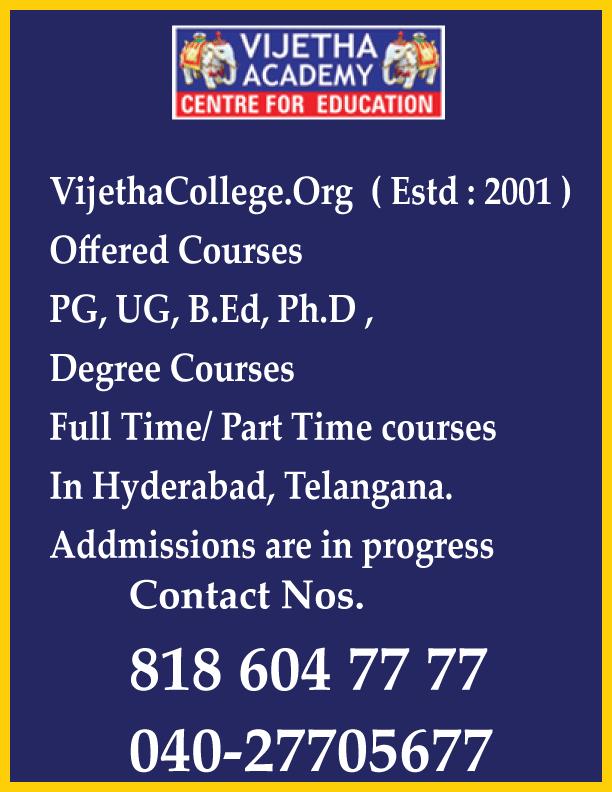
Reflective Education
Reflective teaching pedagogy is a innovative technique in the field of teacher education which can be done through open and distance learning.
Questioning oneself in order to bring perfection is known as reflective teaching methodology. We need to have a self-reflection regarding the model of teaching and how effectively it works in the classroom. The effectiveness of the practice is observed in the classroom.
In this kind of experimenting, the classroom becomes as a laboratory. Using this technique, the teacher imparts her trainees in the practice sessions which serve as an inspiration to all.
Reflective education is a mode of self-observation and self-evaluation. The teacher collects the information and analyse and evaluate the information. We can identity and explore the practices in teaching. This leads to change in the teaching methodology.
Reflective education involves recognition, examination, analysation and evaluation of the information in the process of exploring our own practices.
The individual teacher contains her/his own experiences and also brings about certain beliefs, assumptions, knowledge, attitudes and values to teach. The education takes place in its own uniqueness and characteristics and opportunities.
The implications of all factors to understand and constantly improve the teaching learning process is the main aim of the reflective education. According to Schon, the reflective teaching practice is a continuous journey which involves the learner to develop his or her own unique personality.
The reflective education practices as suggested by Gibbs.
Considering one’s experience in applying knowledge to practicing what is taught while being taught by teachers or professionals. With this, definitely the individuals develop their own personality. The reflective education develops the analysis of feelings as per Gibbs.
The reflective educational practices result in a lifelong learning according to Jasper. The autonomous, qualified and self-directed professionals arise through the constant practice of reflective education.
The upgradation of the quality of caring, stimulating personal and professional growth and forming a bridge between the different areas of theory and practice can be witnessed once we engage in reflective practice.
According to Bartlett, the teacher who follows reflective education involves in the instructional techniques on the questions which are framed using ‘how to’ , ‘what’ and ‘why’ to question about the instructional methods and managerial techniques to fulfil the broader educational purposes.
The teachers begin to control and try to transform the classroom life. The practices involved in reflective education involve reflective inquiry and reflection on practice, results in gaining the professional knowledge to be an effective teacher and to shape children’s learning.
It was stated by Han that in the reflection education, decision making by the teacher is emphasised. The reflective inquiry makes the teacher a great teacher. Once we start questioning about the children’s learning methods, we transform and learn the deeper perspective to help the students. The reflective education is done at both the in-service and pre-service levels.
The training and the involvement with the classmates are very important factors of reflective educational practices. During field experiences, the teachers develop skills for reflective teaching.
The teacher plays the role of a coach and teacher. By making use of personal histories, journals and group discussions, the teachers can coach the student teachers in reflective education.
The teachers who practice reflective educational practices, enables to challenge existing theories which result in professional development that would be beneficial in their teaching career.
It is a proven fact that the critical reflection about their experience as effective technique will be very important for their professional development. The practice of reflective teaching makes the person competent.
When a teacher is into traditional teaching, she would be struggling, but once she has adopted the reflective teaching technique, she would be able to validate what was learnt by her. Focussed reflective learning makes a teacher self-efficient.
The reflective education mirrors the open mindedness, responsibility and whole heartedness:
Reflective thinking has a proven professional growth.
It develops experiential thinking and critical thinking.
Gives freedom to teachers to try their own methodology in teaching to enhance rational thinking.
The teachers understand their own teaching style and improvise the effectiveness in classroom.